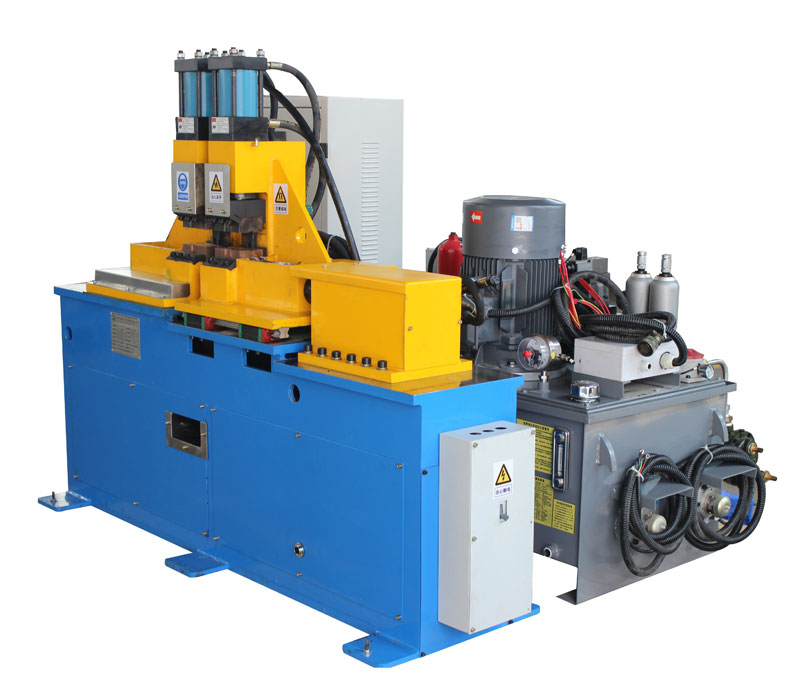Maintenance and Care Considerations for Aluminum Rod Butt Welding Machines
Regular maintenance and diligent care are essential to ensure the longevity and consistent performance of aluminum rod butt welding machines. This article provides a comprehensive guide to the key maintenance and care considerations to keep these machines operating efficiently.
1. Routine Cleaning:
- Importance: Cleaning prevents the buildup of contaminants that can affect machine performance.
- Description: Regularly clean all machine components, including the workholding fixture, electrodes, and surrounding areas. Remove dust, dirt, metal shavings, and any other debris.
2. Lubrication:
- Importance: Proper lubrication reduces friction, minimizes wear, and extends component life.
- Description: Apply lubricants to moving parts as specified in the machine’s maintenance manual. This includes slides, bearings, and any other components requiring lubrication.
3. Electrical and Wiring Inspection:
- Importance: Electrical issues can disrupt machine operation and pose safety risks.
- Description: Periodically inspect the machine’s electrical components, including wiring, connectors, and control panels. Look for loose connections, damaged wires, or signs of wear.
4. Cooling System Maintenance:
- Importance: The cooling system is vital for preventing overheating.
- Description: Inspect and clean cooling components such as fans, radiators, and coolant tanks. Ensure that the cooling system is functioning correctly to prevent thermal issues.
5. Inspection of Welding Components:
- Importance: Well-maintained welding components ensure consistent weld quality.
- Description: Regularly check the condition of electrodes, electrode holders, and other welding accessories. Replace worn or damaged parts promptly to maintain welding performance.
6. Control System Verification:
- Importance: Control system malfunctions can lead to erratic welding results.
- Description: Verify that the control system settings, including welding parameters and program configurations, match the intended operation. Calibrate sensors and controls as needed.
7. Safety Interlock Checks:
- Importance: Safety interlocks are critical for operator protection.
- Description: Regularly test safety interlocks, such as emergency stop buttons and door switches, to ensure they function correctly. Replace any malfunctioning interlock components.
8. Weld Quality Assessment:
- Importance: Monitoring weld quality helps identify issues early.
- Description: Perform periodic weld quality assessments, checking for defects, incomplete fusion, or irregularities. Address any identified issues promptly.
9. Scheduled Maintenance Tasks:
- Importance: Scheduled maintenance prolongs machine life and prevents unexpected breakdowns.
- Description: Follow the manufacturer’s recommended maintenance schedule, which may include tasks such as replacing consumables, inspecting critical components, and conducting performance tests.
10. Operator Training: – Importance: Well-trained operators can identify issues and perform basic maintenance. – Description: Ensure that machine operators receive proper training on machine operation, maintenance, and safety protocols. Encourage operators to report any unusual machine behavior promptly.
11. Documentation and Records: – Importance: Maintenance records aid in troubleshooting and quality control. – Description: Maintain detailed records of all maintenance activities, including dates, tasks performed, and any issues addressed. These records can be valuable for diagnosing problems and ensuring consistent quality.
Effective maintenance and care are vital for the reliable operation of aluminum rod butt welding machines. By adhering to a structured maintenance program and regularly inspecting, cleaning, and lubricating the machine, manufacturers can extend the machine’s lifespan, reduce downtime, and ensure that it continues to produce high-quality welds. Additionally, operator training and a focus on safety contribute to a well-maintained and efficient welding environment.
